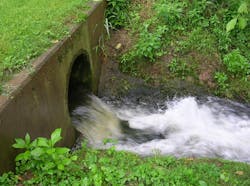The Water Environment Federation’s (WEF) Board of Trustees approved a position statement on the recovery of resources from wastewater during WEFTEC.11—the federation's 84th Annual Technical Exhibition and Conference—taking place this week in Los Angeles.
The statement, “Renewable Energy Generation From Wastewater,” calls for wastewater-generated energy to be widely recognized as a renewable resource and for a greater drive for innovation in the water sector.
"With the passage of this statement, WEF is encouraging our sector to lead the way in helping communities recover resources from wastewater,” said WEF President Jeanette Brown. “It couldn’t be more fitting for this significant step to take place at WEFTEC, which has long showcased progressive thinking and new ideas in water. Moving forward, we want WEF and WEFTEC to help catalyze the wider adoption of innovative approaches in the water field.”
WEF believes that recognizing wastewater-generated energy as a renewable resource could have positive, long-term impacts by stimulating greater production from water resource recovery activities, creating more clean energy jobs and helping to reduce greenhouse gas emissions by alleviating electricity demand from fossil fuel-based power plants.
It could also assist advocates in future policy discussions and encourage widespread adoption by making the practice eligible for federal funding.
Many wastewater utilities worldwide are already involved in all areas of renewable energy, from traditional sources—wind, solar and hydropower—to more innovative approaches such as biomass and emerging technologies.
With the energy contained in wastewater and biosolids greater than the energy required for treatment, wastewater facilities have the potential to be energy neutral or even net energy producers with some plants having already achieved that status.
WEF believes that reaching the goal of energy neutrality relies upon achieving a holistic energy management approach, incorporating conservation practices, and generating renewable energy through the management of water resource recovery and its by-products.
Source: Water Environment Federation


